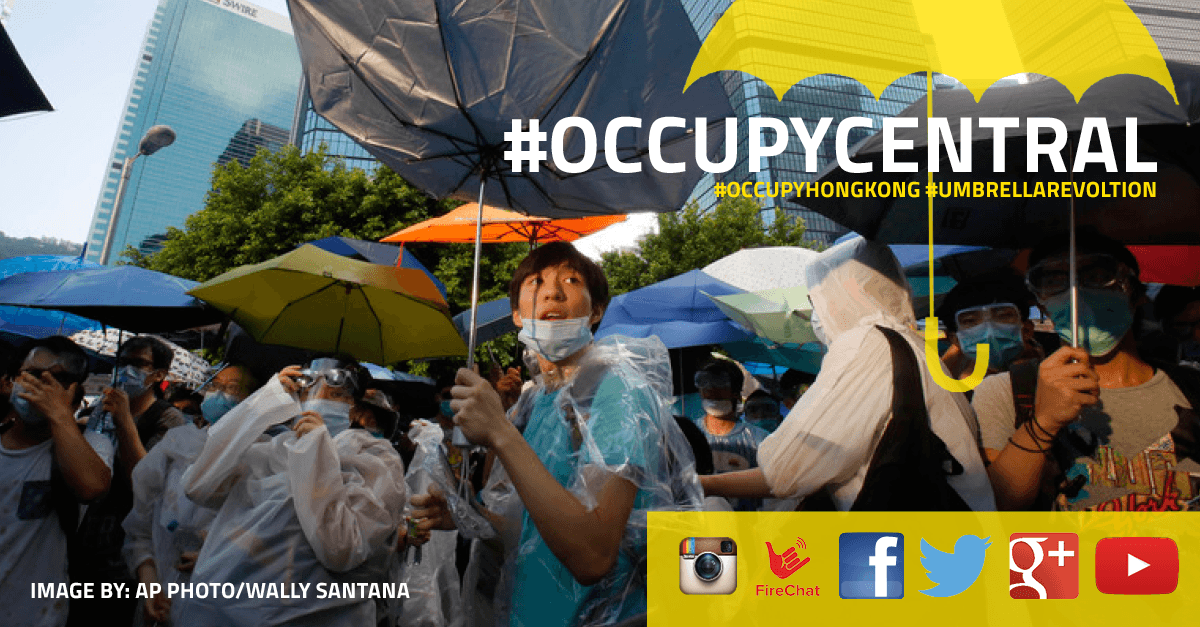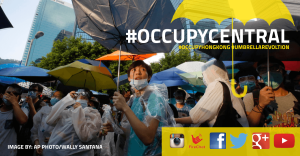How to get a Finnish IP address
The easiest way to improve your digital privacy is to switch your IP address using a VPN. We’ll …

 Hong Kong, a special territory of Communist China, is in turmoil now as 2017 elections approach and pro-democratic citizens use the Internet to make their political opinions known.
Hong Kong, a special territory of Communist China, is in turmoil now as 2017 elections approach and pro-democratic citizens use the Internet to make their political opinions known.
Pro-democratic Hong Kong citizens have spread their ideals through social media, but at a price — their government is watching them very closely. China insists that its people have “full Internet freedom,” but is this really the case?
China’s claims are not true according to the BBC, however. Recently, China blocked its citizens’ access to the English-language version of the BBC’s website. The blockage came after the BBC aired some unsavory video footage of Hong Kong police beating pro-democratic protesters at a demonstration.
Apparently, the Hong Kong police are trying to keep pro-democratic protesters under their thumb. This includes not only physical intervention, but intense cyber-monitoring.
Two men were recently arrested by Hong Kong police for the content of their pro-democratic online posts. Both men supposedly posted rhetoric that was “threatening and intimidating” to authorities, although precise details of what they wrote are not available at this time. According to reports, the police are also keeping a sharp eye on posters who have “chattered” about occupying the Hong Kong National Airport.
These reports call to mind the popular song by British singer Sting, “Every Breath You Take.” In the song, Sting takes on the persona of a man who obsessively stalks his lover. Every breath she takes, every move she makes, Sting promises he’ll be watching her. Although catchy, many would also describe the song as “creepy.” After all, most people don’t relish the thought of being stalked.
To those who support privacy as a human right — when the stalker is big government and the threats include fines, imprisonment, and brute force — the stalking gets downright objectionable. And that’s precisely what some citizens of Hong Kong, including legislator Charles Mok, are doing: objecting to the infringement on their right to self-expression.
Every coin has a flip side, though. Steve Hui, a prominent member of the Hong Kong Police force, takes a different point of view. Hui argues that all citizens of Hong Kong are bound by certain laws and that rebellious online posts are “extremely irresponsible” and must be “strongly condemned.”
It all boils down to an ages-old question. Namely, how much freedom of expression should people have? Although this time, the question comes wrapped in a high-tech package. The Internet is still a relatively new phenomenon; so new, in fact, that many governments haven’t figured out how they’re going to handle it yet.
Freedom of speech is one of the states’ most cherished “freedoms.” Even in America, there’s a constant struggle to keep that freedom on the table. For example, consider the challenge to free speech by Ann Ravel, the Federal Election chairwoman from California who wants to restrict American political bloggers and others from saying what they want to say online.
Californians laughed at Ravel in 2012 when she tried to regulate political speech on the Internet. At that time, Ravel acted as chairwoman for a state agency called the California Fair Political Practices Commission. Ravel now holds a more prestigious position with the Federal Election Commission (FEC) in Washington. Last month, she promised to continue her fight for control over what Americans print on their political blogs.
The chairwoman’s goal may seem “un-American” at first glance, but her concerns aren’t completely unfounded. “Dark money” is a euphemism for money that’s secretly exchanged between people or parties to help influence an election, and Ravel believes that dark-money practices are booming in the political blogosphere. A recent editorial in the New York Times went so far as to suggest that these clandestine payouts influenced the Senate outcome in America’s November 2014 election.
It’s fair to say that, while most people in America want to keep their freedom of speech, the retention of that freedom could have some harmful effects, such as the cover-up of secret payoffs and other underhanded practices that result in unfair elections. This poses a dilemma, to be sure.
If a country like the U.S. struggles to preserve Internet rights, what does this mean for citizens in other areas of the world who live under an iron fist, (arguably) like the people of Hong Kong?
According to research, things are getting worse, not better. A “Freedom on the Net” report released in 2013 details many ways in which Internet freedom has deteriorated across the globe. The report takes three major factors into consideration: how many user rights have been violated, what types of obstacles to Internet use exist, and what type of limits are placed on online content in a given area.
Who exactly should we be afraid of? The Enemies of the Internet 2014 report attempts to identify the entities that block Internet freedom. Private sectors that employ surveillance technology, governments that censor in the name of national security, and Internet service providers who take on a police-oriented role all landed a spot on this 2014 list of Internet censorship perpetrators.
Hong Kong, and China in general, isn’t doing well when it comes to maintaining Internet freedom for citizens, especially when compared to democratic countries like the U.S. While the Chinese government insists that its citizens have free access to the Internet, critics note that this doesn’t reflect the truth. At least, it’s not truthful if you define “freedom” the way that Merriam-Webster does, which is “the absence of restraint.”
In spite of their differences, world leaders who belong to the United Nations have managed to agree on a list of basic human rights that all citizens are entitled to. Included in Article 19 of the Universal Declaration of Human Rights is the inherent right to freedom of opinion and expression that may be expressed through any media. China has been a member of the United Nations since 1945, but at this time, it appears that Article 19 is not on the Chinese government’s radar.
As for the situation in Hong Kong, many expect the clash between pro-democracy groups and authorities to grow stronger as the 2017 election draws near.
